|
Mention of the word ‘slavery’ always conjures up images of the Trans-Atlantic slave trade, during which millions of Africans were captured and sold into servitude in the Americas. Not much is known about the sale of Africans into Arabian markets. Fred Morton writes about a new book that tells the remarkable story of Ethiopian children who were saved from being sold into slavery in Arabic countries in 1888, their subsequent perilous
journey to South Africa, and their subsequent fate.
One of the most aesthetically striking campaigns during South Africa’s election came from the Economic Freedom Fighters (EFF). Matthias Pauwels argues that the party’s militarised style, which includes wearing red berets and titles with a military flair, is more than a sideshow. It in fact forms a key part of the party’s spectacle-oriented brand of politics.
|
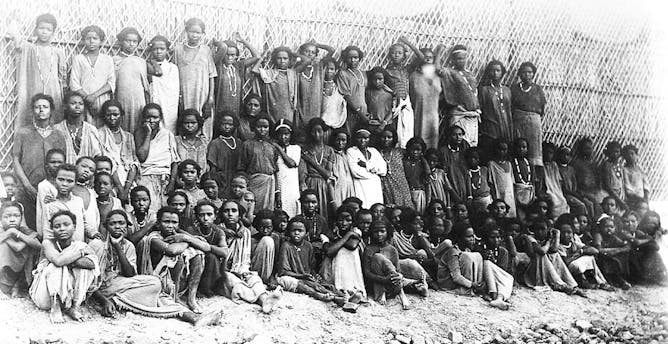
Oromo children saved from slavery.
Supplied by author
Fred Morton, University of Botswana
Book adds a great deal to our understanding of how children were ensnared into the Indian Ocean slave trade.
|
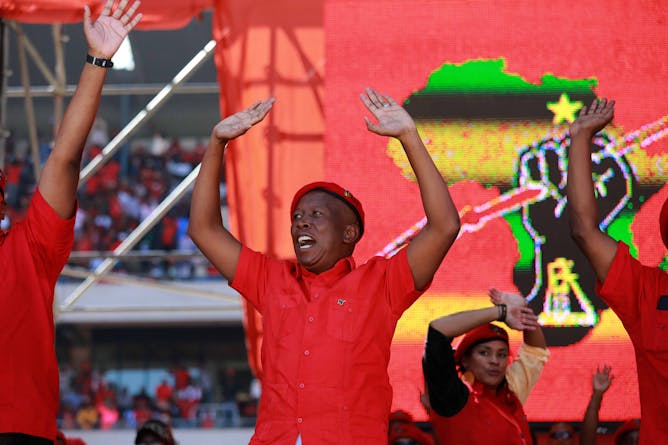
Economic Freedom Fighters leader Julius Malema at an election rally.
Kim Ludbrook/EPA
Matthias Pauwels, University of Johannesburg
The EFF's militarised aesthetic is more than a sideshow. It forms a key part of its spectacle-oriented brand of politics.
|
Education
|
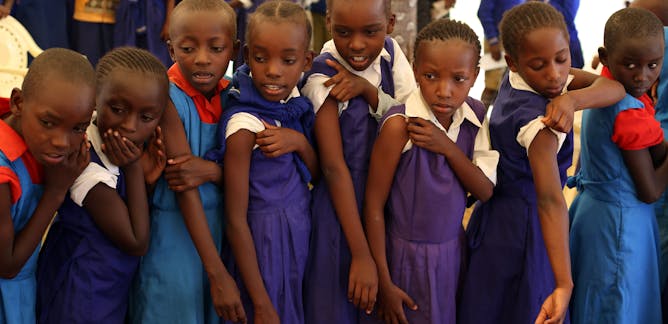
Chris Ifediora, Griffith University
Empowering young women with information in high school can help ensure that certain cancers are caught early.
| |

Sioux McKenna, Rhodes University
South Africa is ahead of the pack when it comes to research output in Africa. But this ranking is not a celebration.
|
|
|
From our international editions
|

Sarah Steele, University of Cambridge; Lejla Sarcevic, University of Cambridge
Some multinational food corporations may have learned a few tricks from big tobacco.
| |
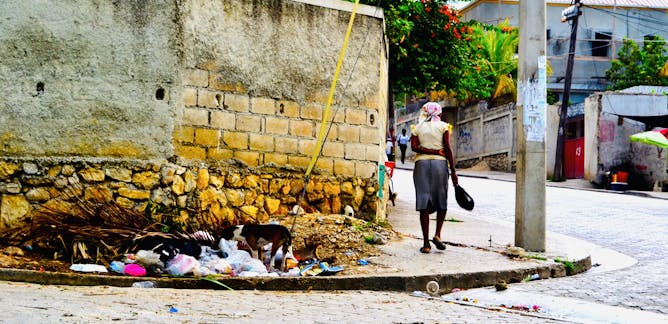
Fiona de Hoog Cius, Sheffield Hallam University
Recognising the role of women in global child slavery is key to addressing it.
|

Germán Orizaola, Universidad de Oviedo
The initial impact of the catastrophe on nature was important, but the exclusion zone has now become a natural reserve.
| |
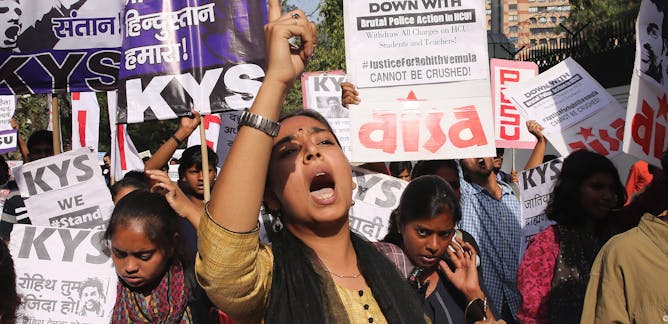
Shalini Sharma, Keele University
Text books are being rewritten and the history of caste in India questioned as 'decolonisation' has become the rhetoric of militant nationalism.
|
|
|
En français
|
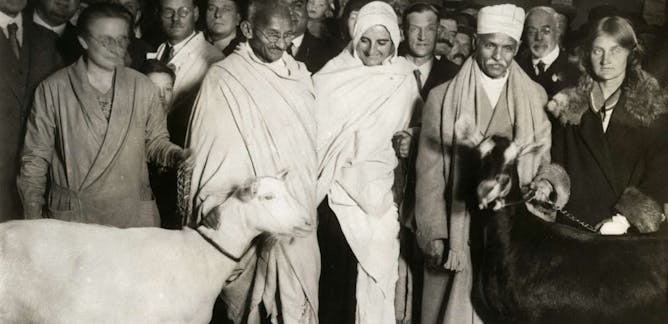
Tom Shillam, University of York
Gandhi est régulièrement cité comme modèle pour les politiciens contemporains. Pourquoi sa pensée reste-t-elle d’actualité ?
| |
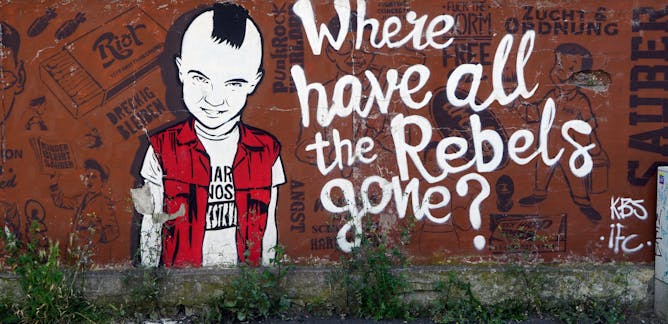
Nicolas Amadio, Université de Strasbourg
Ce plan réoriente la lutte contre la radicalisation vers trois dimensions importantes qui lui ne sont pas exclusives : l’éducation, la prévention et l’évaluation.
|
|
|
En español
|
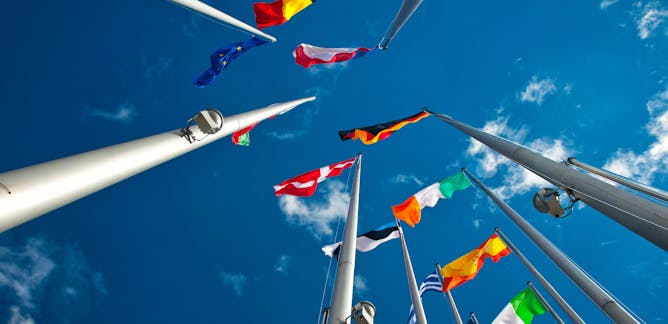
Carlos López Gómez, Universidad Nebrija
Los actos del 9 de mayo homenajean a los padres de la Unión pero también buscan crear y fortalecer en nosotros una memoria colectiva que impulse una identidad común como ciudadanos europeos.
| |

Antonio Rivas Martínez, Universidad Pontificia Comillas
España necesita implementar mecanismos que cubran la falta de ayudas públicas hacia el colectivo migrante, como los fondos de inversión socialmente responsable (ISR) o bonos de impacto social (BIS).
|
|
|